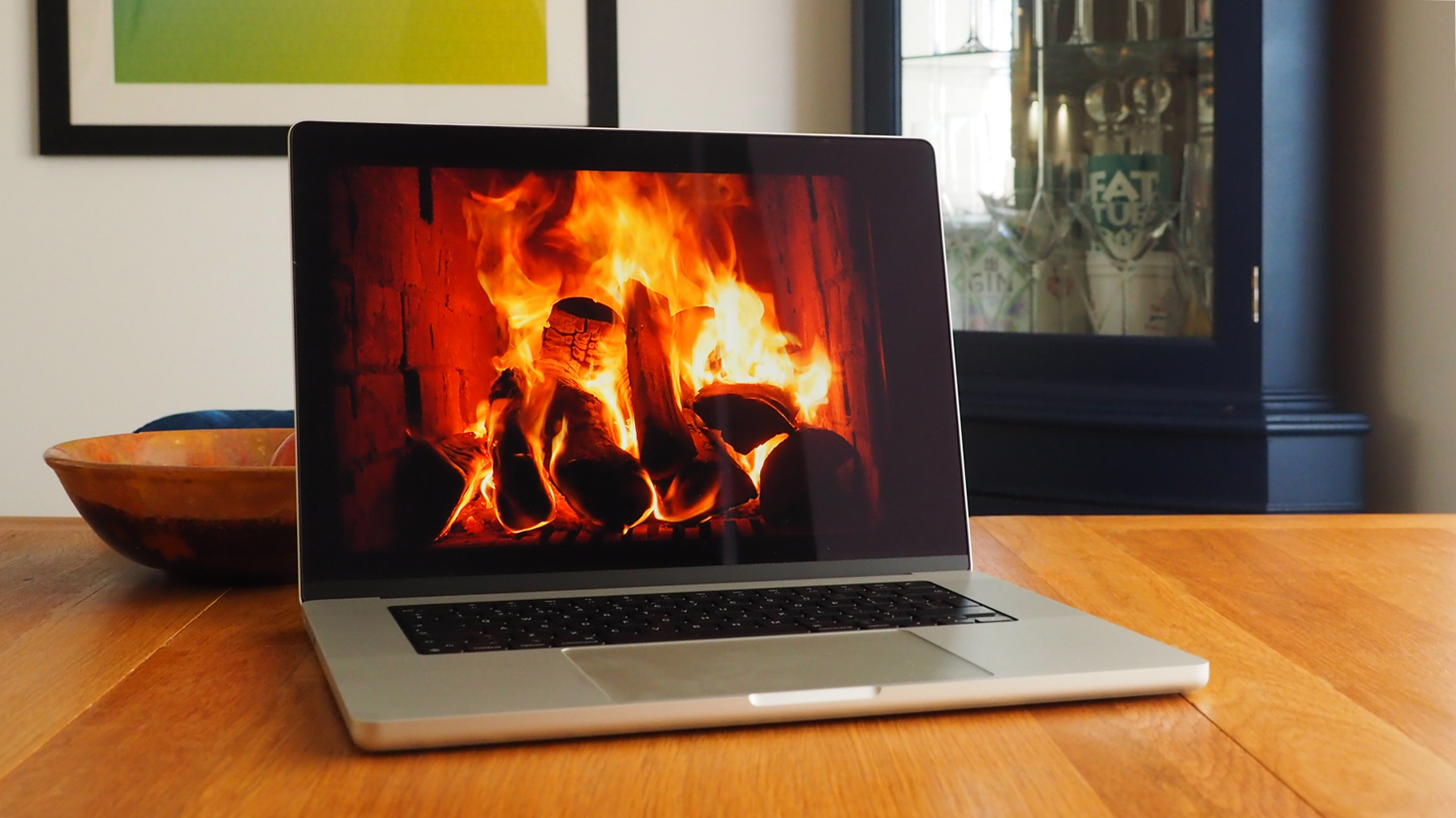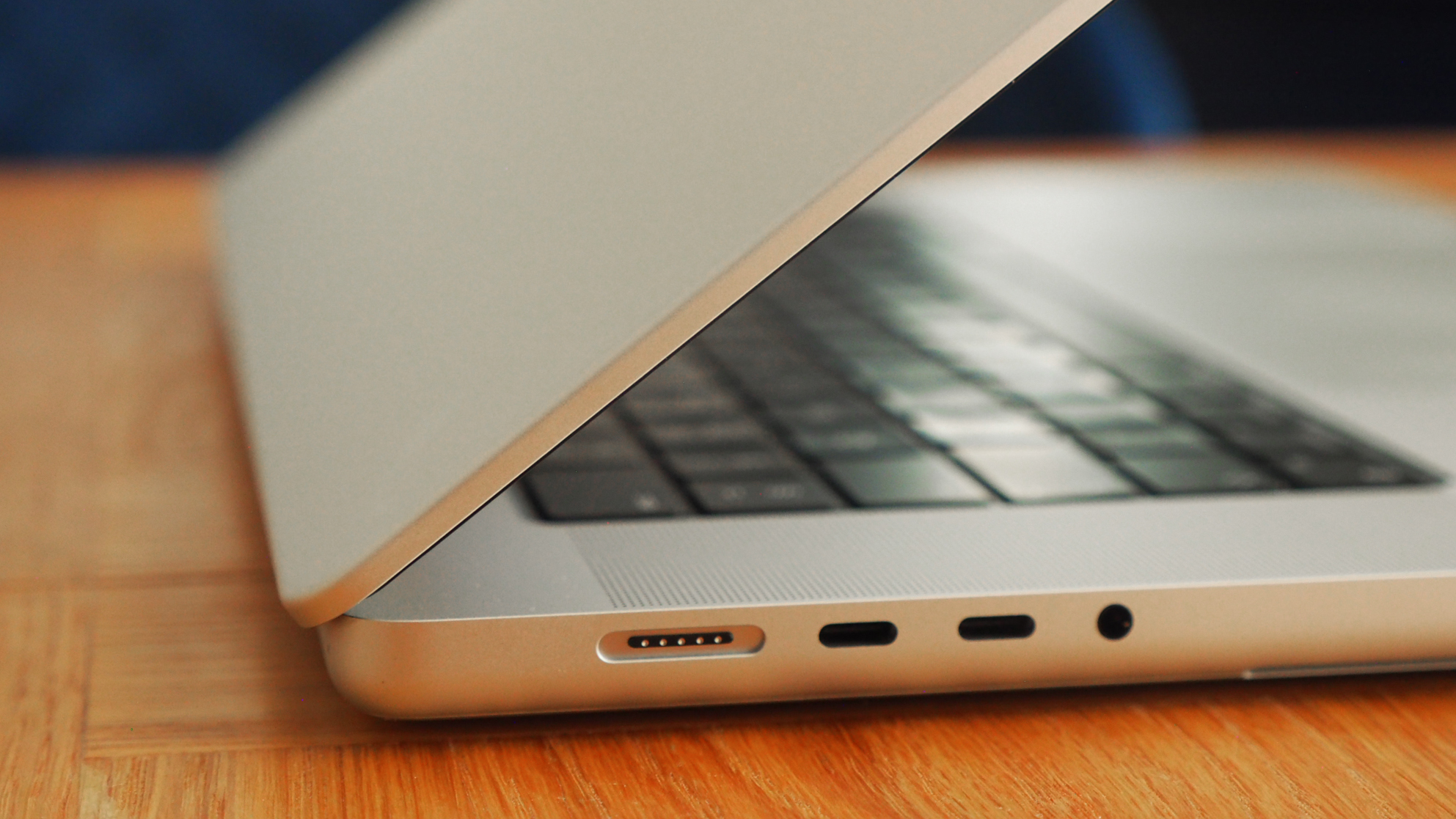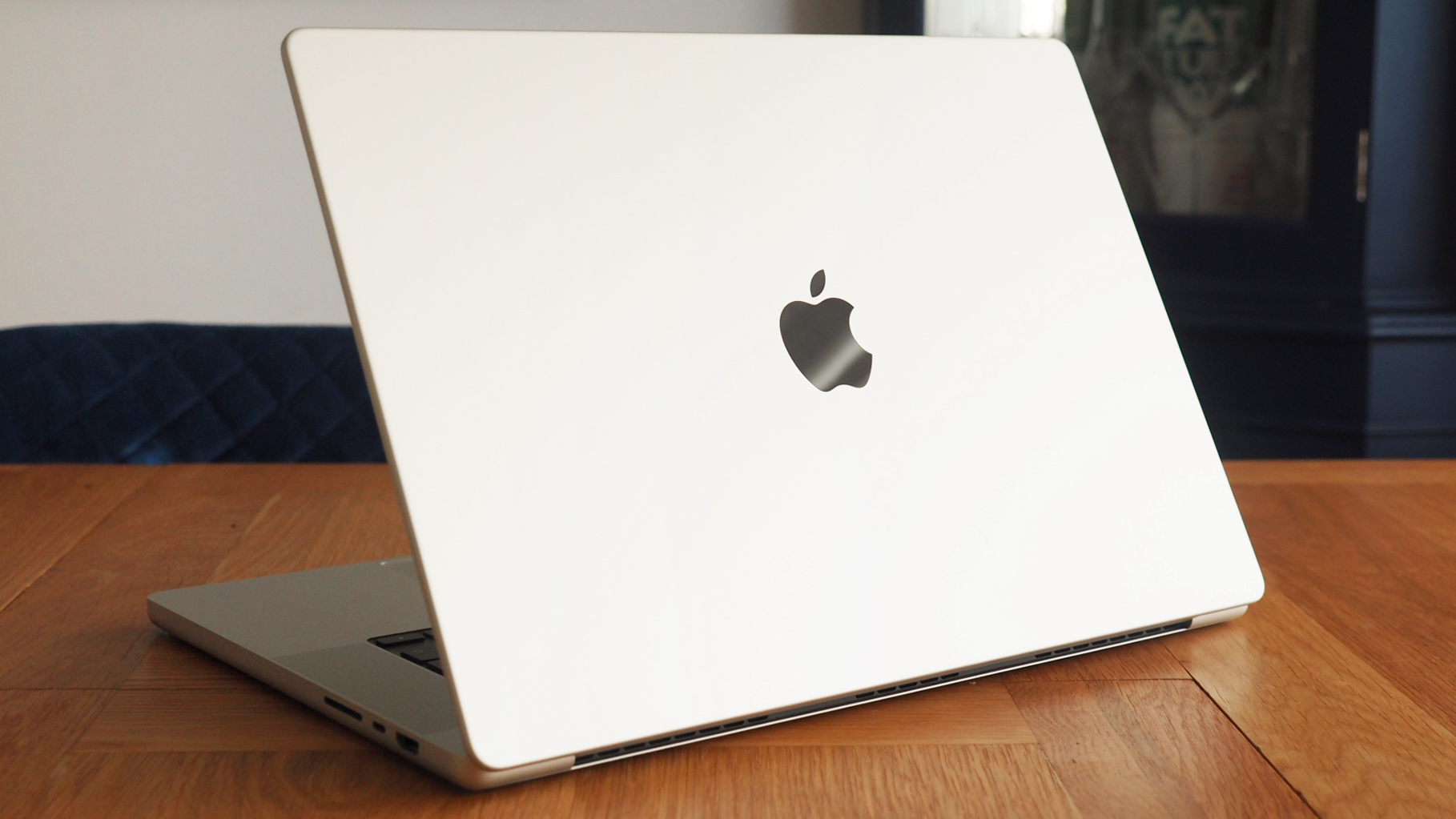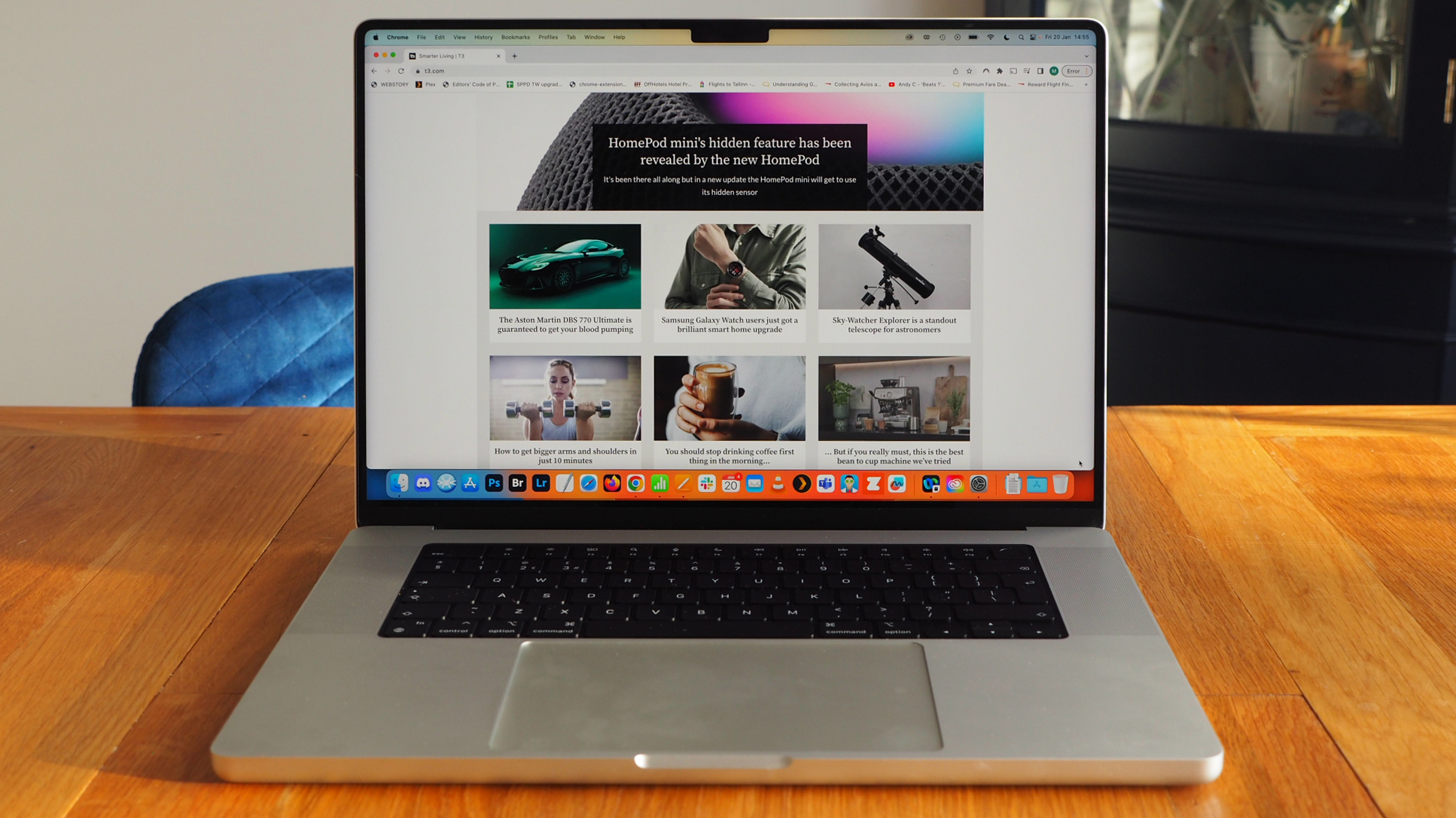Should I buy M2 Pro or Max? 3 reasons to buy 2023 MacBook Pro, 1 reason to not
Since last Friday I've been using the 2023 MacBook Pro 16-inch with M2 Pro. Here's why it's an astonishing Apple upgrade – but not for everyone...

The fire within the screen says it all: the MacBook Pro with M2 Pro is seriously hot stuff (although thankfully not literally, if you're worried about overheating). I've been using the 16-inch model since Friday 20 January, four days prior to its on-sale date today, 24 January, and I already think the 2023 MacBook Pro is the ultimate Apple upgrade and one of the best laptops going.
I've been reviewing MacBooks for many years now, and recently have seen the MacBook Air 2022 and MacBook Pro 13-inch 2022. And while there's plenty to love about those laptops – I still think the Air is the best MacBook for most people – the 2023 MacBook Pro really takes things up a notch (yes, there's a shameful pun in there).
Sure, visually speaking the 2023 range doesn't offer anything over the 14-inch and 16-inch MacBook Pro models from 2021, as the design is nigh-on identical (ok, so the power cable is colour-matched now). So I'm not suggesting that if you use one of those that you should drop everything and upgrade – unless you're really stressing the older M1 Pro/Max system.
After a long weekend of using M2 Pro on the 2023 MacBook Pro, here are three key reasons to consider buying one, and one obvious reason to not...
1. The battery life is brilliant

When testing laptops I tend to run a typical streaming test: get a high-resolution video file, put the volume to half level, up the brightness, then just let it run to see how far it'll go. And in the 16-inch MacBook Pro 2023, which has the largest battery of them all, the answer is that it goes and goes and goes...
One hour into my test and the battery had only dropped two per cent, which made me laugh that it was so little. That rate didn't stick, obviously, but even after leaving the machine running the video all day long, it made it to the 17-hour mark. Not the 22 hours of battery life Apple claims in this particular instance, but that's still exceptionally long performance – and with less Wi-Fi-dependent tasks I've been getting even longer.
Included in the box is a 140W charger, and while the 'brick' by the plug itself is large, this faster charger supposedly means zero to 50 per cent in just 30 minutes, or a full charge in around 80 minutes all in. However, with USB-C to MagSafe 3 connector I've not been able to achieve those speeds: a full charge was estimating over two-and-a-half hours.
Get all the latest news, reviews, deals and buying guides on gorgeous tech, home and active products from the T3 experts
2. M2 Pro is seriously powerful

You can do a lot just on battery power too. Unlike many Intel architectures which require a mains socket to up the power and deliver top-tier graphical power, the M2 Pro inside the 2023 MacBook Pro doesn't need the plug to go all-in with its capability. If you're in an industry that required heavy lifting GPU work and you need to finish off a little extra whilst on the move, you're covered here.
Beyond that, I'm just blown away by the maximum reach of what M2 Pro and M2 Max can provide to users that need it. If you crank up the upgrades list then you can acquire 96GB of unified memory (64GB upwards is M2 Max only). Yes, it'll cost you nearly £7K for the pleasure if you're also maxing out the SSD storage, but that's effectively almost 100GB of shared RAM across the system.
I can already see music producers, videographers and CAD/model creators' eyes lighting up with the potential of that. You needn't bounce down various channels of audio to minimise channels, you can go in heavy on FX without concern, while even large models will be handled in seconds when making adjustments rather than needing to wait around. Compared to M1 Pro/Max it's architecturally much the same, albeit with around a 20 per cent speed boost and access to that much more memory.
3. Display is superb, plus there's HDMI 2.1

While the 2023 MacBook Pro models may look identical to their 2021 counterparts, and visually speaking that's true, there are some minor changes that Apple has made beyond the implementation of M2 Pro/Max which are well worth your attention.
First up is the HDMI port is now the 2.1 type, meaning support for 4K content at 120fps (240Hz monitors are supported via HDMI). Great for high frame-rate (HFR) pieces that you want to output to a TV or monitor. M2 Pro can handle up to two externals, while M2 Max can output to four!
And if you're not outputting the screen then it's a stunner: the 16-inch Liquid Retina XDR display is a Mini LED type, so it's super bright, and nicely crisp thanks to 3456 x 2234 pixels across that large screen. No, no different to the 2021 model, but it's still great looking, if you can forgive the notch top and centre.
Furthermore the Wi-Fi also gets a boost, now supporting the Wi-Fi 6E standard. So if you've got one of the best routers in your possession, at least prior to Wi-Fi 7's implementation, then you'll get even faster connectivity and downloads. Sounds minor, but if you're pushing large files around wirelessly then it's one of those silent but super upgrades.
1. It gets expensive, similar to 2021 model

So the one reason to not buy a new MacBook Pro? As I've been alluding to throughout this piece, a lot of the 2023 models' specification are one and the same as the 2021 models. Apple has discontinued the older M1 Pro/Max silicon in this range with immediate effect, though, so direct from the company's store it's M2 Pro/Max only in the 2023 range from now on in.
I'm a bit conflicted by that: the earlier hardware was already excellent, delivered more-or-less the same battery life (based on my tests anyway), had the same design and screen, and the sole reason I can think you'd still want one – whether refurbished or as end-of-life unsold product – is that you might be able to get a bit of a bargain (this assuming you don't need M2 Max's step-up graphics performance levels).
Because that's the thing about the 2023 MacBook Pro: with M2 Pro on board the 16-inch model starts at £2,699/$2,499/AU$3,999, creeping up to £3,749/$3,499/AU$5,599 for the entry M2 Max model, and if you go all-in on hardware upgrades then it tops out at £6,749 (a model unavailable in Australia at the time of writing).
High sums indeed, but boy oh boy do you get a lot of hardware for your cash – and despite this 'downside' I do think creatives all over are going to be snapping up the new MacBook Pro models in double-quick time to sate their graphics processing appetites. That said, as M2 Pro/Max architecture is simply a scaled-up version of M2, so if you don't need that extra memory and can forego the supposed 20 per cent performance boost then, well, you've got more thinking to do...

Mike is T3's Tech Editor. He's been writing about consumer technology for 15 years and his beat covers phones – of which he's seen hundreds of handsets over the years – laptops, gaming, TV & audio, and more. There's little consumer tech he's not had a hand at trying, and with extensive commissioning and editing experience, he knows the industry inside out. As the former Reviews Editor at Pocket-lint for 10 years where he furthered his knowledge and expertise, whilst writing about literally thousands of products, he's also provided work for publications such as Wired, The Guardian, Metro, and more.
